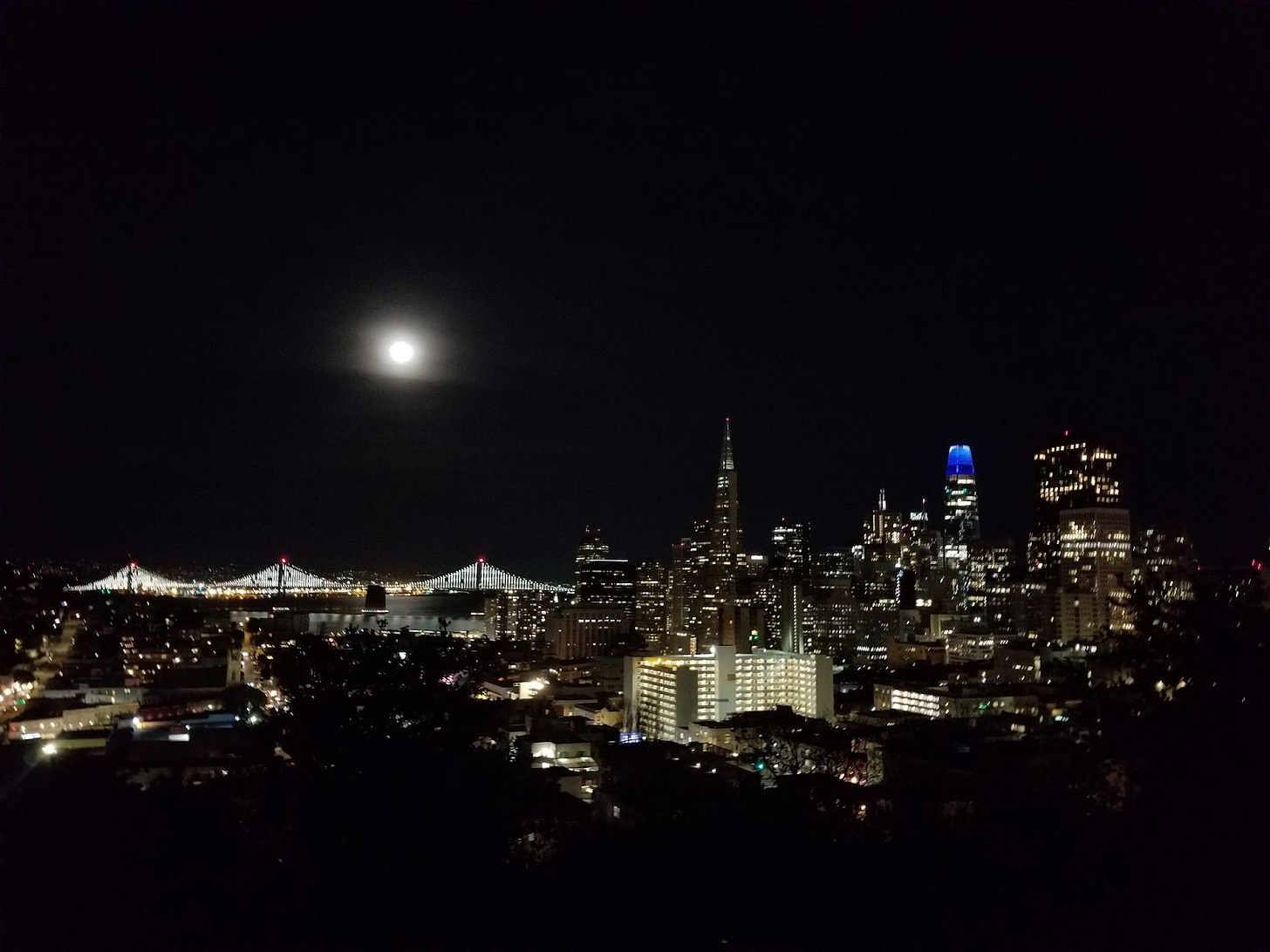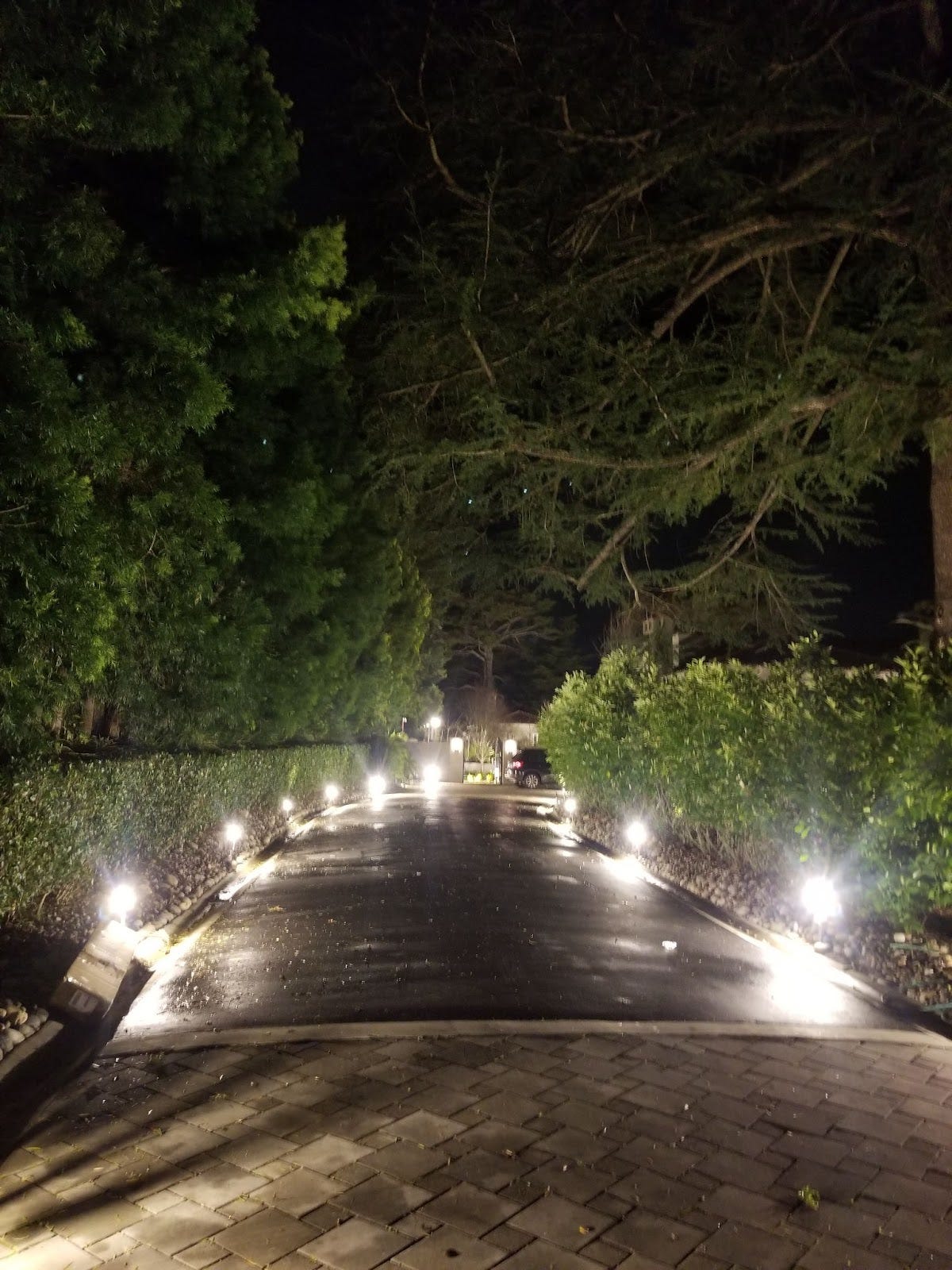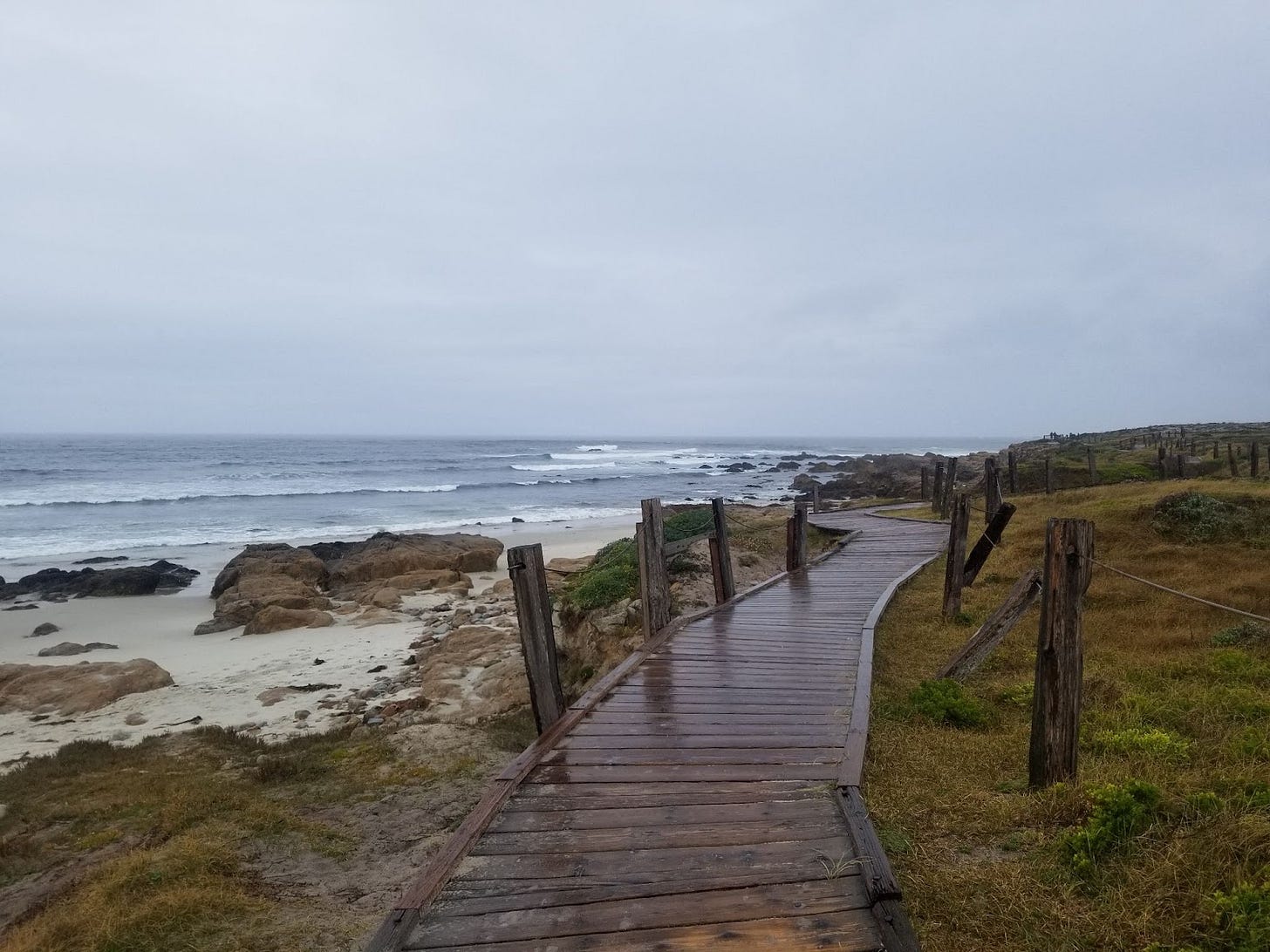The growth-at-all-costs startup model is well-trodden ground for left critique. But how do these systemic incentives play out at an individual level? What does it feel like to live inside that capitalist machine—to be the chief operator making it run?
Today’s piece, a brutally honest personal essay by Anthony Tan, is a message—and a warning—to founders and aspiring founders about the tremendous personal risks of believing you will save the world.
content warning: this essay contains references to suicidal ideation, addiction, psychosis, sexual assault, and mental illness in general.
The Suicidal Founder
By Anthony Tan
Here’s to the crazy ones
Sanity is a scarce resource for founders. Most founders I’ve met in San Francisco have experienced terrible mental health at some point: clinical depression, various addictions, bipolar disorder, panic attacks, debilitating anxiety… and the big one: suicidal ideation.
Suicide is one of the last taboos in mental health. 1 in 4 people have experienced or will experience suicidal thoughts. From my time in the startup ecosystem in SF, I believe that for founders, that number is closer to 3 out of 4.
This is not a cry for help—it’s a cry of “fire”! I was complicit in the arson of my own mental health.
In 2022, I spent six months in various hacker houses across San Francisco. To dent the universe: to distort reality: to help save the world.
Six months later, in January 2023, I had a total psychotic breakdown. I didn’t sleep for eight days, and spent time in the hospital and a psych ward. I was strapped down, locked up; I had become a danger to myself and others.
This post is for founders, and the friends and family of founders. It poses a simple question: Why are founders so willing to risk everything for our startups, including our health?

San Francisco, city of dreams. There’s a suspension of disbelief in the atmosphere, where it feels like anything is possible. In my first few months, I witnessed a 19-year-old at my WeWork raise double-digit millions for his startup, I met a 17-year-old who mattress-sleds down his stairs and runs a massive crypto fund, and I was pitched by a 14-year-old on a boozy Bay cruise. At 23, I feel both too old and too young to be here.
If you were in SF, you’d see for yourself the self-driving, sensor-laden SUVs gliding effortlessly past rows of homeless tents; you’d hold your breath at sidewalks that smell of piss, then inhale freely at the beauty of rooftop gardens; you’d gorge on free food and drink at the latest crypto party, without thinking too hard about where that money comes from.
Us younger, eager, founders flounder near the bottom of the food chain, paddling towards glory. With every movement, chumming the waters for VC. Our minds, malleable. Our role models, tech billionaires. Our realities so thin, it feels like they could crack—like we could fall in at any time.
Every founder is expected to have a world-changing vision. At my startup, this was ours: a world connected by Virtual Reality so that people could come together across the boundaries of borders, class, politics, cultures. The original promise of the internet, fulfilled. My first article with Reboot is full of this idealism.
VR genuinely has changed my cofounder’s life and my own life. My cofounder met his girlfriend in VR and they now live together IRL. I’ve personally had two relationships start in VR, then transition IRL. Through VR, I’ve befriended people from all over the world, from so many different backgrounds. Our startup, Flirtual, is a mix between a dating platform and a social network. The problem? Loneliness, arising from our disembodied internet. The solution? Social VR, with its humanizing effect of presence, which gives people the ability to spend time together immersively across any distance. We held fast to our ideals: open-source, open-algorithm, and being part of the same communities as our users.
I can appreciate the irony that, while trying to connect the world with love, friendship, and open-mindedness, I became more isolated and miserable until the point when I completely snapped.
Denting the universe
Drawing on the work of sociologist Émile Durkheim, it seems that suicidal thoughts and tendencies arise from one of four areas: meaninglessness (anomie), loneliness (egoistic cause), guilt (altruistic cause), and despair (fatalistic cause). Founders, in seeking to create and spread our own meanings through our companies, encounter all four.
Tech startups are built on the premise of changing the world. In this view, technology is the Promethean gift that advances civilization, and founders are the ones creating whole new paradigms; from the Model T to the Tesla, from the phone to the smartphone. In its raw form, the myth of the founder helps us renew our faith in human creativity and progress. Three of the most popular founder biographies—Steve Jobs, Elon Musk, and Phil Knight—all showcase this basic narrative.
Founders serve as the operative Jesus-like figures of technology, the Homeric heroes of capitalism. As such, us founders are supposed to be sacrificing ourselves for our causes. This saviour complex is encouraged at every stage of the founder journey, from the first VC meeting where one must “dream big”, to the ring of the bell on the NASDAQ and beyond. Work-life balance is irrelevant. Your startup is your shot at making history.
What is more important than saving the world? What is more impactful than denting the universe?
Although I’d been warned, I wasn’t ready yet for the crushing loneliness that came with running a startup. I didn’t realize how totalizing one facet of your identity could become. In college and before, I was used to nurturing separate spheres of work, friends, family, and hobbies. But running a startup becomes all-consuming, existential. Everything blends together into one instrumental goal: startup success, at any cost.
Cofounding a startup felt like throwing as much as I could of myself into the fire of my own and others’ expectations. If you will permit me the metaphor, it felt like standing at the lip of a volcano and sacrificing parts of myself in a ritual for success.
Is giving up writing enough, dear Volcano?
Hobbies take up valuable brain space. Throw away gaming and movies while you’re at it; they’re all a waste of time. Your startup comes first. This is the path you chose. Remember, not everyone gets this opportunity, or can take on this kind of risk. .
I still can’t help but play video games sometimes, I know it’s unproductive.
Just make sure to feel extra guilty for procrastinating.
What about my friends?
Nope, they’ll slow you down. You are becoming different: they are becoming boring. But try to make more founder friends; you know, “networking.”
What about dating?
*laughs*
Why do my close friends and family seem worried about me?
They don’t get it. They don’t even know what you're doing. And most of them don’t actually believe that you can “make it”. So ignore them.
Should I move to San Francisco?
Yes, of course. That’s founder mecca. If SF can’t save you, nothing can.
Wow. That worked. I love it here, so much passion. So many founders.
I told you, didn’t I?
I feel like shit. So much passion. So many founders.
That’s a you problem. Become more like them. You all believe in each other, don’t you? Isn’t that a beautiful thing?
Should I do shrooms for productivity, because I have no energy, because the company could die, because we only have a couple more months of runway?
Sounds intense, but yeah, you gotta save your company. The alternative is letting down everyone who believes in you: your cofounder, your team, your users, your investors, your parents, your friends, and of course, yourself. Is that really a choice?
Is it noble to risk my sanity and potentially trigger a manic episode, when I have very weak health insurance here, and I’m pretty sure I’m bipolar?
Yup, just keep going. It’ll be worth it one day. Do or die.
Woah. I did it, it worked. Those two weeks saved the company! That wasn’t bad at all!
Exactly, says the Volcano. Good job. Just keep going.
Keep feeding me, and one day I will erupt with everything you ever wanted.
When my cofounder and I started our company, I remember daydreaming about what I would say if we were interviewed by the press. Almost exactly a year later, we were interviewed by national and international press. That dream came true. We dreamt that our startup would secure some funding. It happened. We dreamt of revenue, of growth. That happened, too.
Dreams can come true, but at what cost?
Crunch, burnout, crunch, burnout, rinse, repeat. There’s a real Faustian bargain here between your startup and your health. In the short-term, faced with the death of your company from lack of runway, putting your health second to success seems rational. And what is long-term, anyway, if you’re thinking in 6-to-18-month VC-happy roadmaps? When contemplating the death of your startup feels like death itself?
In SF, I have seen blood paying for blood. A founder encouraging his cofounder’s cocaine addiction, for productivity; a founder, dead broke, accruing thousands of dollars in credit card debt; sexual assault scandals in all the major hacker houses; outright scam crypto projects being born to cheers and laughter.
SF is the kind of place where sleeping your way to the top begins to sound like a viable business strategy. Isn’t it all just networking? A founder friend of mine worried out loud how he would have to find a serious relationship before his Series A, because after that he’d have to worry about gold-diggers.
This is where our technology is coming from—this heady mix of people, technology, and capital; and homelessness, and madness, and megalomania.
Think different
By starting our own companies, we thought we were free. But the clarity of my near-death experience showed me that I was only swapping one ego-cage for another; from being “just another worker” or “just another person” to being “just another founder”: comparing myself to others based on startup valuations, press attention, employee headcount, VC tier lists, etc. Ego-cages upon ego-cages. Cells, interlinked. Burning myself out, flaming on others, sacrificing everything for The Cause.
Dear founder, ultimately, the choice is up to you. My cofounder and I just want to create something good and useful, make a livable salary while doing it, and maintain our values—and our happiness. Is that so hard? Yes, according to the entire founder literature. Those are the wrong metrics—neither ambitious nor quantifiable enough. “It sounds like you’re building a lifestyle company”.
I have no doubt our niche will become a multi-billion dollar industry someday. But I have a secret desire to burn all that imaginary money; to not capture it in the first place; to plant the seeds of real trust and let it grow free; to let our startup blossom as goodwill, without the artificial fertilizer of VC; to not become another dark-patterned, Pavlovian, consumer-app hellhole in a late-capitalist, Skinnerian world. To instead become a sort of public utility, a kind of social infrastructure, benevolently and democratically run.
I’m no longer willing to put my everything on the line for a leaky narrative. With Sam Bankman-Fried, Elizabeth Holmes, Adam Neumann, even Zuckerberg and Musk, the myth of the founder as tech-Jesus is showing its cracks.
It certainly cracked me. Becoming a “founder” required serious psychological rewiring—the doublethink between our desire for social impact and the necessary billion-dollar vision, the constant encroachment of personal boundaries, of my identity and sense of self-worth; to see myself and others’ faith in me corrupted into a life-threatening pressure of impossible expectations; periods of profound hopelessness and guilt at letting everyone down—all this, over months and months, led me to a total psychotic breakdown. And I knew that if I continued down this path, it would kill me.
So is it really a choice?
My hope is that, after reading all this, you can see yourself as a person first and a founder second. As a person, you should have a right to dignity, to authenticity, to freedom and the pursuit of joy and love. These are more than just ideals. They are the essence of our humanity, owed and due to every single person. They are the things that were steadily erased from me throughout my time as a founder, and things our society desperately needs more of. In our own individual lives, they are things we should always have a say in—or fight to have a say in.
I hope you can stop thinking of everything in your life in terms of instrumental value to your startup. I hope you can balance your desire for historical significance with the actual lived lives of you and the people who care about you. I hope you don’t have to experience a complete breakdown to think through all this.
You are not your startup. You are a person. We are all people. That’s all.
These days, after a recovery period, I’m back at my startup. The difference is, I am prioritizing the wellbeing of myself and my team. Before I can lead others, I must try to live a good life first. We’ve put in measures to prevent burnout: set working hours, mandatory vacations, weekly mental health checks, and more. More importantly, we are doing things our way, by our values, or not doing them at all.
I think, therefore I am; and I almost wasn’t. Now I am watching this change in my thinking spiral outwards. I am waiting for life to bloom again.
Anthony Tan is a person, and also the co-creator of Flirtual (the first VR dating app). You can find him on Twitter @existony.
Reboot publishes essays and interviews reimagining tech’s future every week. If you liked this and want more, subscribe below.
🌀 microdoses
rayne fisher-quann writes beautifully about the hyper-individualist trap of self-care and self-optimization culture: “Doesn’t aspiring to construct a perfect self imply a desire to destroy the current one, anyway?”
From very serious literary magazine Taco Bell Quarterly, an ode to writing and dreaming and trying actually very hard: "Keep posting into the oblivion. Keeping sending your work out even though there is a 99% chance it’s going to come back and break your heart."
If you liked last week’s tech criticism essay, check out Ben Tarnoff's recent talk on how critique can sharpen the tech alternatives we must build.
💝 closing note
From the community this week:
The latest issue of the html review, a web-first literary magazine, features work from Ivan Zhao, Katy Ilonka Gero, Spencer Chang, and Alicia Guo.
Isabelle Levent and Lila Shroff interviewed computational poet Katy Ilonka Gero about generative AI and her creative practice.
You are a person first,
Jasmine & Reboot team











New Year's update (2025). I wanted to add that I haven't had any suicidal ideation in more than a year now. And luckily the whole time back when I did, the suicidal ideation I had did not extend to planning, preparation, or any actual attempts - "just" recurring thoughts. That being said, please take this post seriously, and know that a crisis hotline or therapist can do wonders even at "just" the "intrusive thoughts" stage. Especially, in my experience, for founders.
Mental wellbeing isn't just an important thing, it's the MOST important thing.
The pressure to be the best at your job is something that a lot of us grapple with, but when you're the visionary that is supposed to be leading others, it's exponentially more intense.
As a journalist I've worked at several content startups in their earliest stages. I've seen the toll it can take on leadership, including myself. The highs are like nothing else, but the lows are equally intense. You start looking for an edge, whether that means working obscenely long hours in pursuit of your goal or searching for outside influences that you convince yourself you need (drugs, alcohol, mentorship from people who don't have your best interests in mind, etc).
What I've learned over the years (I'm now 38 and have been doing this since I was 22) is that your mind and your body truly are a temple, and not in a religious way. It has basic needs that many people ignore.
Sleep, nutritious food, and water are the easy ones, but that only scratches the surface.
Spend time in silence. Spend time in darkness. Sit with yourself in a room without a TV on and your phone turned off. Remember who you are and take inventory of your thoughts and feelings, without judgement. Spend time in nature. Touch grass. Hug a tree. Sit in the dirt. Sweat. Cook food over a fire. Breathe.
The more we recognize what we truly need (and it's not the same for everyone) the more we gain perspective of what's important, what expectations are realistic, and where we need to compartmentalize our work and personal lives.
Sorry, I don't want this to sound preachy, but we're not that far removed from our ancestors who spent their days scanning the horizon instead of doomscrolling their social feeds. Technology, business, and social norms have evolved much faster than our bodies, so give yourself some "caveman time" every once in a while and you might be surprised how natural and comfortable it feels.
Take care of yourself and others.